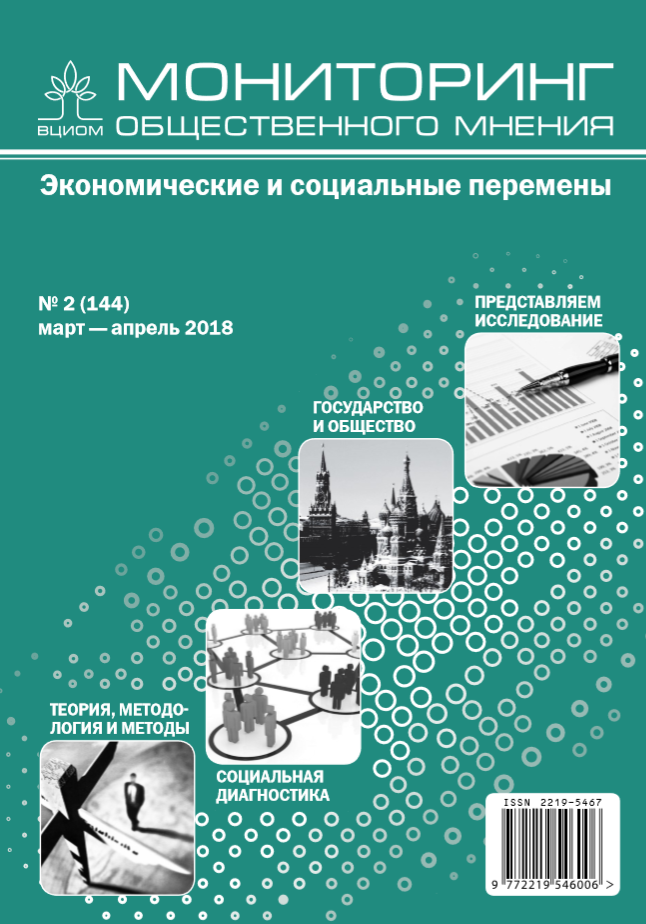К проблеме классификации общин буддистов-конвертитов
DOI:
https://doi.org/10.14515/monitoring.2018.2.07Ключевые слова:
социология религии, буддизм, сектоведение, необуддизм, религиозная конверсияАннотация
В центре рассмотрения статьи вопрос об организационной классификации европейских буддийских общин, появившихся в различных постхристианских странах лишь в конце XX века. Автор показывает, что в понятийном аппарате современного религиоведения, сектоведения и социологии религии не обнаруживается адекватной терминологии для обозначения религиозных групп и организаций, считающих себя буддийскими. Рассматриваются три организации, существующие в Республике Беларусь: «Религиозная буддистская община «Шен Чен Линг» традиции Бон», Дзогчен-община и культурно-просветительское общественное объединение «Центр буддийской культуры и традиций» (более известны как представители «Буддизма Алмазного Пути традиции Карма Кагью»). Все три демонстрируют уникальные и пока малоизученные формы организации своих адептов в общины, нетипичные для традиционных буддийских регионов. В научной литературе их, в зависимости от позиции авторов, могут называть сектами, культами, необуддизмом, модернизированным или нетрадиционным буддизмом. Однако подобные понятия, часто присвоенные безрефлексивно, не в полной мере отражают суть данного феномена. Более удачное определение — «общины конвертитов», используемое в социологии и обозначающее людей, обратившихся в нетрадиционную для их места проживания религию. Автор статьи полагает, что следует говорить об особой форме или модели буддизма, которую можно обозначить как «западный буддизм» и необходимо отличать от неадаптированного для европейцев буддизма на Западе. Материал для рассмотрения изучаемого феномена был собран посредством методов включенного наблюдения, полевых и экспертных интервью, анкетирования, а также с помощью анализа литературы и веб- сайтов групп буддистов-конвертитов.






